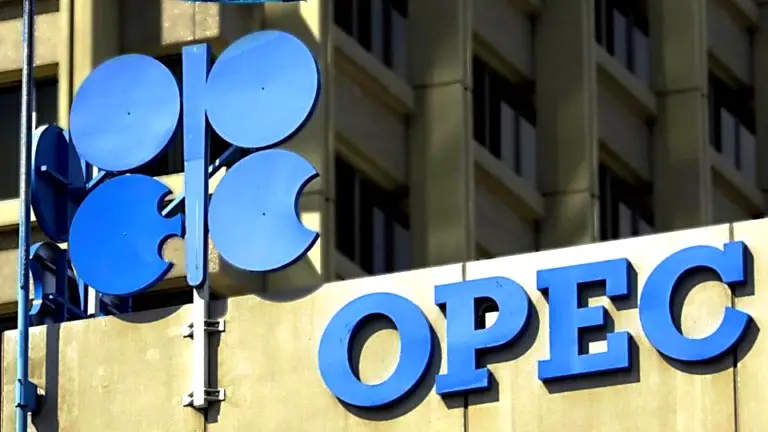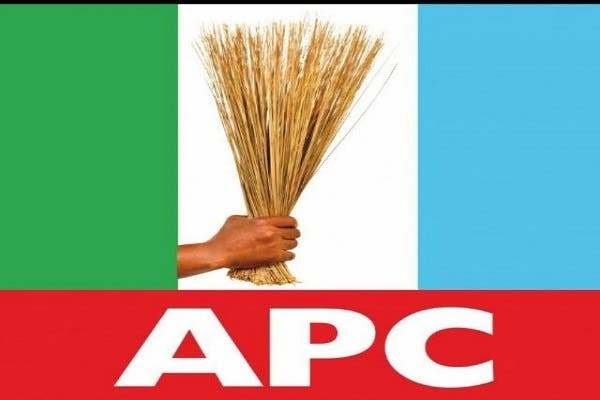Business
FG Grants N16tn Waiver To Dangote, Honeywell, Others
Published
2 years agoon
By
Editor
…S’Africa Earned $107bn Tax Revenue In 2021, Nigeria $15bn, Behind Kenya, Angola
…Waivers Discriminatory — Experts
The Federal Government has foregone N16.76tn in revenue to tax reliefs and concessions given to large companies between 2019 and 2021, according to findings by The PUNCH.
As of the end of 2021, 46 companies had benefitted from various tax incentives and duty waiver schemes while the requests of 186 companies were still pending.
These were contained in the tax expenditure statement (TES) reports in the Medium-Term Expenditure and Fiscal Strategy documents posted on the website of the Budget Office of the Federation.
The TES deals with revenue forgone on Company Income Tax, Value Added Tax, Petroleum Production Tax, and Customs Duty.
In the TES report for 2019, it was stated that the Federal Government had forgone revenue of N4.2tn from two main sources, CIT and VAT.
For CIT, the estimated amount of revenue forgone was N1.1tn while N3.1tn was for VAT.
The TES report read, “The most significant conclusion is the large size of Nigeria’s revenue forgone from just two of the main taxes, i.e., CIT and VAT. Nigeria’s non-oil revenue potential is at least twice its current collections.
“The preliminary estimate of revenue forgone from CIT incentives and concessions in 2019 is N1.1tn; for contrast, 2019 CIT collections was N1.6tn. The preliminary estimate of revenue forgone from VAT policy choices and compliance gaps is estimated to be NGN 3.1tn and could possibly be more. It is worth reiterating that revenue forgone from Customs Duty, Excises, Petroleum Production Tax, Personal Income Tax and concessions under the Oil and Gas Zones legislation is still to be computed.”
According to the TES report, the figure for revenue foregone would likely exceed N4.2tn if there were sufficient data, especially from Customs Duty, Excises, PPT, Personal Income Tax and concessions under the Oil and Gas Zones legislation.
By 2020, the figure rose to N5.8tn, with majority of it coming from revenue forgone under VAT. A breakdown showed that N4.3tn was forgone under VAT; N457bn under CIT; N307bn under PPT, and N780bn under customs duty.
It was also noted that five countries accounted for about 86 per cent of total customs relief, with China accounting for nearly two-thirds of total relief granted. Netherlands, Togo, Benin and India were the other top sources of supplies benefitting from the reliefs.
READ ALSO: Debt Servicing Gulps N13.17tn Under Buhari, Education Suffers
The total figure continued to rise in 2021, hitting N6.79tn, with revenue foregone on VAT accounting for most of it. A breakdown showed that N3.87tn was forgone under VAT, N548.40bn under CIT; N337.70bn under PPT; N1.84tn under customs duty; and N111.15bn under imports VAT.
For the three-year period, therefore, the Federal Government had to forgo a total of N16.79tn in tax reliefs, Customs duty waivers and concessions, according to an analysis by The PUNCH.
Under this figure, tax exemptions covered imported goods covered by diplomatic privileges, military hardware, fuels and lubricants, hospital and surgical equipment, aircraft (their parts and ancillary equipment), plant and machinery imported for use by companies in export processing zones, health and medical supplies to abate the spread of COVID.
Other exemptions included: reliefs on the presidential initiative on COVID-19 supplies, Import Duty and VAT on commercial airlines.
It was also noted that five countries accounted for about 92 per cent of total Customs relief with China accounting for nearly half of the total relief granted. Singapore, Netherlands, Togo, Benin Republic and India were the other top sources of supplies benefitting from the reliefs.
Meanwhile, the beneficiaries of the tax reliefs and concessions included Dangote, Lafarge, Honeywell and 43 other major beneficiaries.
As of the end of 2021, 46 companies had benefitted from the tax incentive scheme while the requests of 186 companies were still pending.
They were beneficiaries of the pioneer status tax relief under the Industrial Development Income Tax Act with tax reliefs for a three-year period.
This was contained in the Q4 2021 PSI report released by the Nigeria Investment Promotion Commission.
The pioneer status is an incentive offered by the Federal Government, which exempts companies from paying income tax for a certain period. This tax exemption can be full or partial.
The incentive is generally regarded as an industrial measure aimed at stimulating investments in the economy.
The products or companies eligible for this pioneer status are those that do not already exist in the country.
These companies included: Dangote Sinotrucks West Africa Limited, Lafarge Africa Plc, Honeywell Flour Mills Nigeria Plc, Jigawa Rice Limited, and Stallion Motors Limited.
Others included: African Foundries Limited, Royal Pacific Group Limited, Kunoch Hotels Limited, Princess Medi Clinics Nigeria Limited, Medlog Logistics Limited, and Masters Liquefied Gas Limited.
Economists back waivers
Economic experts have stressed the role of tax waivers in driving economic growth but questioned the transparency and objective rate of the Federal Government in granting the tax waivers.
The Managing Director/Chief Executive Officer, Cowry Asset Management Limited, Mr Johnson Chukwu, explained that what was forgone could not be seen as revenue leakages, describing it as delayed gratification which would enable the Federal Government to achieve long-term higher revenues.
READ ALSO: Nigeria’s Debt To World Bank Rises By $660m
He added, “Tax is a fiscal tool and fiscal tools are used to stimulate economic activities or discourage certain harmful or inappropriate economic activities.
“I won’t call the amount as losses unless those tax concessions were not granted with an objective motive and national interest.”
He stressed that there were benefits that would accrue from granting these waivers, noting that they would stimulate the economy.
The Chief Executive Officer, Centre for the Promotion of Private Enterprise, Dr Muda Yusuf, also noted that there was nothing wrong with waivers if they were in line with tax policies.
He noted that tax incentives were necessary to encourage investment and the establishment of some pioneer businesses.
He said, “The whole idea of incentives is to grow the economy. When you are growing the economy, you are not only looking at revenue, you are looking at employment and multiplier effects. In the medium to long term, you will get this revenue by the time you are able to grow these investments. It is inappropriate to see it as revenue loss unless the incentive policy itself is discriminatory.”
He stressed that the process should be transparent and seen as an effort by the government to grow the economy.
Waivers discriminatory — Experts
However, some experts are of the opinion that tax reliefs and waivers granted by the government were discriminatory, noting that some of the processes were not transparent enough.
A former President of the National Accountants of Nigeria, Dr Sam Nzekwe, said there was a need for the process of granting certain tax reliefs, import duty waivers and concessions to be transparent.
He said, “The issue here is how transparent it is. The problem we have is who and who are given the tax waivers and how transparent they are. It is good to give tax waivers, especially to pioneer industries to enable them to start.”
For a professor of Economics at the Nnamdi Azikiwe University, Uche Nwogwugwu, such waivers were naturally discriminatory.
“They fulfil an economic theory that says that the rich man should not be taxed so as to provide jobs for the poor man. If the rich were taxed, the poor would not get jobs, that is what they are applying, which is a negative economic theory.”
He wondered why companies would be selected to benefit from such humongous tax waivers when the country’s revenues were seriously leaking.
He further questioned why the small and medium-scale businesses, which were the real job creators in the economy, were not provided with waivers.
“The SMEs created 59 million jobs as of 2017, which was around 80 per cent of the employment in the economy. The majority who created these jobs were micro businesses, which made up 99 per cent of SMEs group. Many of them are looking for just as little as N50, 000 to expand. Why is our government not looking in this direction?” he queried.
However, the Fiscal Policy Partner and Africa Tax Leader at PricewaterhouseCoopers, Mr Taiwo Oyedele, noted that tax incentives were crucial in driving investments when properly targeted.
He said, “Tax incentives are not necessarily bad. They can be applied in a manner that benefits the overall economy by encouraging investments in critical areas.
“However, incentives must be properly designed and targeted to be meaningful while the government must periodically review incentive schemes to ensure they are still relevant and provide value for money. For instance, the N16tn tax for the last three years includes VAT exemption on basic food items which is necessary given the level of poverty and rising food inflation.”
He further urged the government to close the non-compliance gap, leverage technology and tax intelligence while ensuring tax harmonisation to boost tax revenue.
“To improve revenue from taxation, the government needs to focus on closing the non-compliance gap, leverage on technology and tax intelligence, while ensuring tax harmonisation both in terms of reducing multiple agencies to a single revenue agency per level of government as well as harmonising multiplicity of taxes,” Oyedele added.
Nigeria ranks low
Nigeria is not in the right fiscal shape as exemplified by its poor tax revenues. The country earned N6.4tn in taxes in 2021, according to the Federal Inland Revenue Service. This represents about $15.433bn.
READ ALSO: Debt Servicing To Hit N10.43tn, Economists Slam FG
“The FIRS, in the year 2021 collected a total of N6.405tn in both oil (N2.008tn) and non-oil (N4.396tn) revenues as against a target of N6.401tn,” a statement released by the Special Assistant on Media and Communications to the Chairman of FIRS, Muhammad Nami, in January 2022, had said.
“Non-oil sector contributed 69 per cent of the total collection in the year, while oil sector’s contribution was 31 per cent of the total collection.
“The Service issued certificates for the sum of N147.8bn tax credit to private investors and the NNPC for road infrastructure under the Road Infrastructure Development Refurbishment Investment Tax Credit Scheme created by Executive Order No. 007 of 2019,” he added
However, this number was dwarfed by the revenues that accrued to Africa’s second-largest economy in the same year.
South Africa collected $107bn (R1.56tn) in tax revenues in 2021, which was a 25 per cent increase in tax revenues from the 2020 figure, according to the South African Revenue Services.
Personal income tax contributed 35.5 per cent to the figure, while VAT had a 25 per cent share. Similarly, CIT contributed 20.7 per cent while customs duties’ contributed 3.7 per cent, the revenue agency said.
PUNCH
You may like


Two Soldiers Arrested For Allegedly Stealing Armoured Cables At Dangote Refinery In Lagos


JUST IN: Dangote Slashes Diesel Price


Hajj: Five States With $383m Debt Budget N9bn For Pilgrims


Full List: 13 New Governors Borrowed N226.8bn In Six Months – DMO


8-year-old Survives As Bus Carrying 46 Pilgrims Crashes In South Africa


Nigeria’s Debt Hit N97.34tn In Q4 2023 – DMO
Business
CBN Gives New Directive On Lending In Real Estate
Published
2 days agoon
April 17, 2024By
Editor
The Central Bank of Nigeria, CBN, has released a new regulatory directive to enhance lending to the real sector of the Nigerian economy.
The directive, issued on April 17, 2024, with reference number BSD/DIR/PUB/LAB/017/005 and signed by the Acting Director of Banking Supervision, Adetona Adedeji, signifies a notable shift in the bank’s policy towards a more contractionary approach.
In line with the new measures, the CBN has reduced the loan-to-deposit ratio by 15 percentage points, down to 50 per cent.
This move aligns with the CBN’s current monetary tightening policies and reflects the increase in the Cash Reserve ratio rate for banks.
READ ALSO: JUST IN: CBN Gov Sacks Eight Directors, 32 Others
The LDR is a metric used to evaluate a bank’s liquidity by comparing its total loans to its total deposits over the same period, expressed as a percentage.
An excessively high ratio may indicate insufficient liquidity to meet unexpected fund requirements.
All Deposit Money Banks are now mandated to adhere to this revised LDR.
The CBN has stated that average daily figures will be utilised to gauge compliance with this directive.
Furthermore, while DMBs are encouraged to maintain robust risk management practices in their lending activities, the CBN has committed to continuous monitoring of adherence and will adjust the LDR as necessary based on market developments.
READ ALSO: JUST IN: CBN Increases Interest Rate To 24.75%
Adedeji has called on all banks to acknowledge these modifications and adjust their operations accordingly. He emphasised that this regulatory adjustment is anticipated to significantly influence the banking sector and the wider Nigerian economy.
The circular read in part, “Following a shift in the Bank’s policy stance towards a more contractionary approach, it is crucial to revise the loan-to-deposit ratio policy to conform with the CBN’s ongoing monetary tightening.
“Consequently, the CBN has decided to decrease the LDR by 15 percentage points to 50 per cent, proportionate to the rise in the CRR rate for banks.
“All DMBs must maintain this level, and it is advised that average daily figures will still be applied for compliance assessment.
“While DMBs are urged to sustain strong risk management practices concerning their lending operations, the CBN will persist in monitoring compliance, reviewing market developments, and making necessary adjustments to the LDR. Please be guided accordingly.”

The Dangote Petroleum Refinery has announced a reduction in the price of Automotive Gas Oil, popularly called diesel, from N1,200/litre to N1,000/litre.
It announced this in a statement issued on Tuesday by its spokesperson, Nduka Chiejina.
The statement read in part, “In an unprecedented move, Dangote Petroleum Refinery has announced a further reduction of the price of diesel from N1,200 to N1,000/litre.
READ ALSO: NNPP Faction Suspends Kano Governor For Six Months
“While rolling out the products, the refinery supplied at a substantially reduced price of N1,200/litre three weeks ago, representing over 30 per cent reduction from the previous market price of about N1,600/litre.
“This significant reduction in the price of diesel at Dangote Petroleum Refinery is expected to positively affect all the spheres of the economy and ultimately reduce the high inflation rate in the country.”
According to The PUNCH report, last week, oil marketers called on the refinery to reduce its diesel price, as they urged managers of the facility to sell at N850/litre.
Details later…
Business
Nigeria’s Oil Production Drops Again, Now 1.23mbpd – OPEC
Published
1 week agoon
April 12, 2024By
Editor
Nigeria’s crude oil production witnessed the second consecutive monthly decline since the beginning of this year, as it dropped to 1.231 million barrels per day in March, the Organisation of Petroleum Exporting Countries stated on Thursday.
OPEC disclosed this in its latest Monthly Oil Market Report for April 2024, stating that crude oil production details which it got through direct communication from Nigeria showed that the country pumped less oil in March when compared to what was produced in February.
Data from the report indicated that Nigeria produced 1.322 million barrels per day of crude in February this year, but this dropped to 1.231mbpd in March, representing a plunge of 91mbpd.
The report further stated that the country had produced 1.427mbpd of crude in January, but this was not sustained in February as it dropped in that month, while the southward oil production continued in March.
OPEC data, however, showed that the country’s average crude oil production in the first quarter of 2024 was 1.327mbpd, higher than the 1.313mbpd average oil production in the fourth quarter of 2023.
Nigeria’s first quarter oil output in 2024 was also higher than the 1.201mbpd average production in the third quarter of last year.
READ ALSO: Oil Production Rises 26.57m Bpd In February — OPEC
Oil theft and pipeline vandalism have dealt severe blows on Nigeria’s oil production, limiting the country’s output and making it fall below the volume approved for Nigeria by OPEC.
The PUNCH reported on Wednesday that the Nigerian National Petroleum Company Limited recorded 155 oil theft incidents in one week.
The report that stated the company revealed that during the review period, 53 illegal pipeline connections and 36 illegal refineries were uncovered in the Niger Delta.
“Between March 30 and April 5, 2024, a total of 155 incidents were recorded across several locations in the Niger Delta region from various incident sources,” the firm stated.
In a summary of the incidents, NNPCL stated that it recorded 53 illegal connections, discovered 36 illegal refineries and 32 wooden fibre boats, identified 14 pipeline vandalism cases, eight vessel infractions and four oil spills, as well as made seven vehicle and one vessel arrests.
Some of the incident sources include the Nigeria Agip Oil Company, Tantita Security Services Ltd, NNPCL Command and Control Centre, Shell Petroleum Development Company, NNPCL 18 Operating Ltd, among others.
READ ALSO: Oil Drops Further After OPEC Delay With Asian Stocks Mixed
Providing additional details, the company said, “In the past week, 32 wooden boats conveying stolen crude and illegally refined products were seized and confiscated in Rivers and Delta states.
“On land, seven vehicles loaded with stolen crude were arrested in Imo, Delta and Rivers states. 53 illegal connections were uncovered between March 30 and April 5, 2024 in Bayelsa, Rivers and Delta states.
“14 cases of vandalism were also recorded in Rivers, Bayelsa and Delta states, while illegal storage sites where stolen crude and illegally refined products are kept were uncovered in Akwa Ibom, Bayelsa, Rivers and Delta states.”
The national oil company also stated there were clusters of illegal refineries in Abia State, as activities of oil thieves had devastated the effected environments in the state.
It said 36 clusters of the illegal refineries were discovered in the past week across several locations in Rivers and Abia states.
“Four cases of oil spills due to activities of vandals were recorded in the past week,” NNPCL stated, adding that in Rivers State, oil leaks from a wellhead is destroying aquatic lives.
NNPCL stated that 38 suspects were arrested during the week under review, stressing that the national oil company would not back down on the war against crude oil theft until the menace is eradicated.
READ ALSO: OPEC Cuts Nigeria’s Oil Output By 20.7% To 1.38 mb/d
Nigeria has been losing trillions of naira to crude oil theft, a development that has made some international oil companies to divest from onshore to deep offshore oil fields, while others have exited the country.
In November 2023, for instance, The PUNCH reported that the Federal Government revealed that more than N4.3tn worth of crude oil was stolen in 7,143 pipeline vandalism cases within a period of five years.
The report stated that the government disclosed this at the Nigeria International Pipeline Technology and Security Conference in Abuja, with the theme, ‘Bolstering Regulations, Technology and Security for Growth.’ The conference was organised by the Pipeline Professionals Association of Nigeria.
In a presentation at the conference by the Nigeria Extractive Industries Transparency Initiative, a Federal Government agency, the organisation revealed that oil theft and losses in Nigeria had become a national emergency.
The Executive Secretary, NEITI, Ogbonnaya Orji, said oil theft was an emergency that posed serious threat to oil exploration and exploitation with huge negative consequences on economic growth, business prospects and profit earnings by oil companies.
Providing data from the agency’s reports to back his claims, he said, “NEITI disclosed that in the last five years, 2017 to 2021, Nigeria recorded 7,143 cases of pipeline breakages and deliberate vandalism resulting in crude theft and product losses of 208.639 million barrels valued at $12.74m or N4.325tn.
“NEITI reports also disclosed that during the same period Nigeria spent N471.493bn to either repair or maintain pipelines.”
PUNCH

Former Arsenal Chairman, Keswick Is Dead

JUST IN: Court Clears Ex-AGF Adoke Of Money Laundering Charges

Police Seal Off Benue APC Factional Secretariat

Woman S*xually Abuses Child, Films It In Viral Video

Jnr Pope: ‘That Guy No Suppose Knack Bell’ – Boat Captain Narrates His Own Side Of Story [VIDEO]

Junior Pope: ‘Our Boat Captain Hit Fisherman’s Canoe’ – Survived Actor Narrates How It Happened [VIDEO]
Trending

 Metro4 days ago
Metro4 days agoJunior Pope: Photos From Funeral Of Makeup Artiste, Abigail Frederick

 News5 days ago
News5 days agoVideo: Moment Pastor Enenche Sent Lady Away For Giving False Testimony On The Altar

 Metro3 days ago
Metro3 days agoTwo Soldiers Arrested For Allegedly Stealing Armoured Cables At Dangote Refinery In Lagos

 News4 days ago
News4 days agoBREAKING: APC Suspends National Chairman Ganduje

 Headline4 days ago
Headline4 days agoUS-based Nigerian Bodybuilder Dies 18 Days After Being Shot By Wife

 News3 days ago
News3 days agoBREAKING: FG Begins Disbursement Of N200bn Palliative Loans

 Headline2 days ago
Headline2 days agoB-I-Z-A-R-E: Woman Wheels Dead Uncle’s Corpse Into Bank To “Sign Off” Loan In Her Name [VIDEO]

 News4 days ago
News4 days agoPastor Enenche Under Fire For Accusing Church Member Of Fake Testimony

 Metro3 days ago
Metro3 days agoTransformer Vandal Met Waterloo, Electrocuted In Benin

 Metro5 days ago
Metro5 days ago‘Side Chick’, Family Members Allegedly Attack Lover’s Wife
























